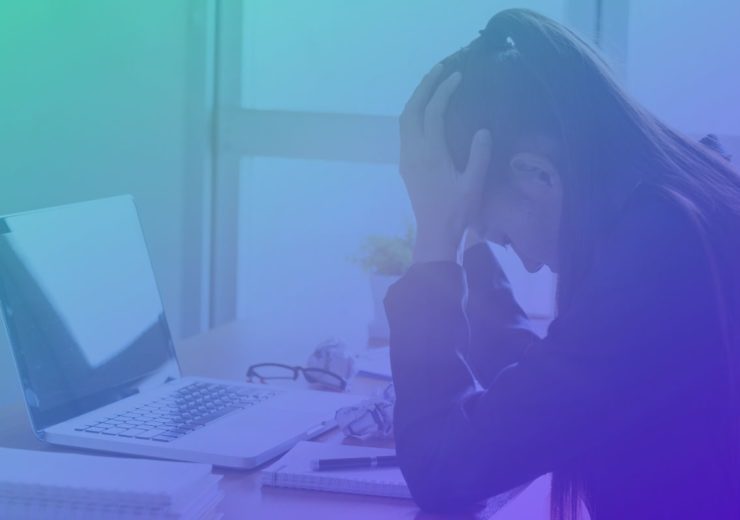Nothing Fails Like Success

Steven Spielberg was rejected by the University of Southern California 3 times before he dropped out to become a director. Colonel Sanders was rejected 1009 times when he tried selling his fried chicken recipe before deciding to just start KFC. Thomas Edison created 10,000 failed prototypes of his electric bulb before succeeding. And my personal favorite, perhaps one of today’s most newsworthy “failure stories” comes from SpaceX. SpaceX had over one dozen failed or uncontrolled launches and/or landings of the Falcon 9 and Falcon Heavy launches. Yet in the end, we are going beyond the moon! SpaceX is successfully delivering to the space station, returning, and landing rockets in a way that makes colonizing Mars seem completely within reach.
Now, I am not a modern day scientist or EV prophet like Elon Musk. Nor am I trying to sell any famous chicken recipe (though I do have a few good recipes up my sleeve). I don’t want to become a movie director (though I wouldn’t mind the free tickets). And I mean, the light bulb has already been invented (and thank goodness for that). So it might not seem like I have too much in common with Spielberg, the Colonel, and Edison at first glance. But I too have had my fair share of small “failures” along my path before reaching certain milestones and “successes.”
The longer I’ve been in the working world, the more I’ve realized that this pattern of failure before success isn’t one that is unique to the guys above, or to me. It’s more the norm than it is the exception, and understanding that can change your outlook on everything.
In my experience, the key to success is to fail early and to fail fast.
If You’ve Never Failed, You’ve Never Tried
It’s not a new story. People have been failing as long as there were people around to try.
Whether you are aiming for a career change, a promotion, a goal within your business, a relationship, or any other achievement, you have to try. And like the annoying sibling that they can’t get away from, with trying always comes risk. Risk implies uncertainty and the potential for an unfavorable outcome. But it also comes with potential for a really great outcome.
Let’s go back to my favorite example and to me, one of the best examples of success/failure cycles alive today: Elon Music. Musk prides himself on having a “resume of epic failures” (although he’d undoubtedly add some more distinct language to that self-description than I am allowed to have here). You don’t have to read far into his bio before you are ready to back him up on that.
Trying has led him into near bankruptcy, career blows, divorce, and literal rocket explosions. But trying has also led him to be an incredibly successful entrepreneur, proud father, and a revered human being. Heck, trying has led him to launching a car into space!!!
Still, when speaking about Tesla, Musk admitted, “I thought we would most likely fail.” But he coupled that with saying, “If something’s important enough you should try. Even if you know the probable outcome is failure” (source).
If You Aren’t Failing, You’re Not Learning
Have you ever tried something really, really stupid that at the time you thought was a really, really good idea? Imagine making a zipline that leads from a beautiful forest to an expansive lake. The basic contraption involves tying a rope between a high tree, and a dock sticking out of a lake. The first one to try, runs towards the lake, hopeful and excited, and quickly jumps in the air only to just as quickly have their body dragging along the edge of the lake before even touching the water. Even if you’ve never experienced this scenario for yourself, you can imagine how quickly you learn some lessons about physics, basic engineering, and being the first one to volunteer.
As painful as the process might be, small failures really do make for great learning opportunities.
Amazon founder Jeff Bezos swears by the importance of failure in learning, both for his own life and as a core part of Amazon company culture. Ever since his first letter to shareholders in 1997, Bezos has emphasized how tolerance for failure is a large part of Amazon’s success, saying, “We will continue to learn from both our successes and our failures.”
Bezos, who himself has made “Literally billions of dollars of failures”, also wrote, “Failure comes part and parcel with invention. It’s not optional. We understand that and believe in failing early and iterating until we get it right” (source).
You don’t just learn existential life lessons on perseverance and overcoming limits through failing, you learn really practical things too. In the case of the zipline example, you learn you need to tie the rope a lot tighter, and a lot higher. Only then does your zipline work.
Allowing yourself to fail along the way, as you develop a new app, or go into job interview after job interview, is only allowing yourself the privilege of learning as quickly as possible.
Failing Is Not The Same As Being A Failure
It’s easy to look back at success in hindsight and say the failure was worth it. It’s harder to grasp failure in the moment as part of the ride. But, hard as it may be, look at the stories of failure of some of your heroes for inspiration, just like the ones I brought up today.
Better yet, look at the stories of those around you in your own social and professional circles who had moments of failure but who are doing great now. And maybe best of all, look at your OWN past failures, and see how they have brought you to where you are now. Share a few of your experiences with me, as I’d love to hear them.
And then — keep trying, keep failing, and keep succeeding.
Have a failure story? Share our story of failure with me on Twitter @CazBevan.
Sources:
Here is a fine graphical representation of the failure and success of SpaceX: https://en.wikipedia.org/wiki/List_of_Falcon_9_and_Falcon_Heavy_launches
Some great infographics to illustrate some of the world’s most notable “failures”: http://notes.fundersandfounders.com/




